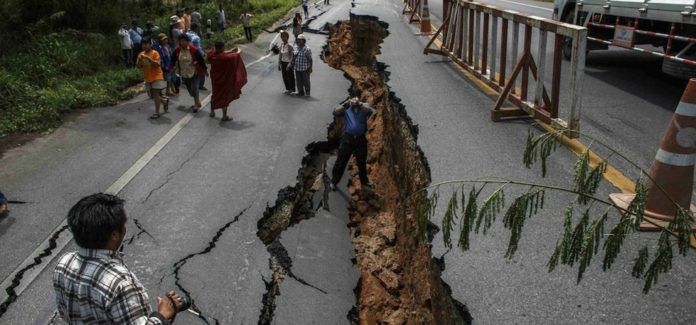
On April 25 last year, a 7.8-magnitude earthquake killed more than 8,000 people and injured more than 21,000 in Nepal. On August 24 this year, a devastating 6.2-magnitude earthquake — country’s largest since a 6.3-magnitude earthquake in 2009 — killed more than 290 people in central Italy. Both were dreadful events with heartbreaking consequences.
However, seismologists warn an earthquake 32 times more powerful than the Nepal earthquake is ready to hit South Asia; California could be hit by a massive 8-magnitude or bigger catastrophic earthquake at any time, they add.
What can you do? Brace yourself.
While you cannot prevent the destruction caused by a natural disaster, you can certainly minimize the loss by keeping yourself and your home earthquake-ready. There are things you can do to help protect your home and family — make your own earthquake preparedness kit. Up Worthy has compiled a list of five essential household items that can help you survive for up to two weeks, in the event of an earthquake…
Water
For drinking and sanitation, it is important to store one gallon of water per person per day for at least three days. This means a family of four will need at least 12 gallons of water to combat an emergency. Children, pregnant women, pets, and sick members of the family may require additional water. You have a choice to buy pre-packaged bottled water, or you can fill your own supply in food-grade water storage containers.
Food
The Centers for Disease Control and Prevention suggests stocking at least a three-day supply of non-perishable food. Choose foods that last a long time, that do not need to be refrigerated, are easy to make, are high in calories and nutrition, and items that you regularly eat including canned and packaged food. Make sure you have a manual can opener and disposable utensils, as well.
Toiletries
Your water and food supply is limited; still you need to maintain sanitation and hygiene and keep germs and diseases at bay. In short, you have to keep clean to safeguard your life. Toilet papers, sanitary pads, disposable soaps, garbage bags, disinfectants, and air fresheners are an absolute must.
First-Aid Kit
Apart from the usual Band-Aids and wet wipes, keep non-prescription drugs such as pain killers, anti-diarrhea medicines, antibiotic ointment, eye and ear drops, antacid, antiseptic creams and moisturizers, cough syrup and laxatives; sterile equipment, such as safety pins, latex gloves, sterile gauze pads and bandages, scissors, tweezers and thermometer.
Solar Charger
The first thing that’s snapped post earthquake is the power supply: you may go without power for days on end, or face inconsistent electricity. So while it is important to keep a spare mobile phone charger handy to contact friends and family, it is equally important to purchase a portable or solar charger. According to Up Worthy, nearly 24% of Nepalese citizens lost power after the devastating earthquake in April 2015, but solar-power stations helped restore telecommunication and a sense of normality.
This article (Top 5 Essentials to Help You Survive an Earthquake) is a free and open source. You have permission to republish this article under a Creative Commons license with attribution to the author and AnonHQ.com.




